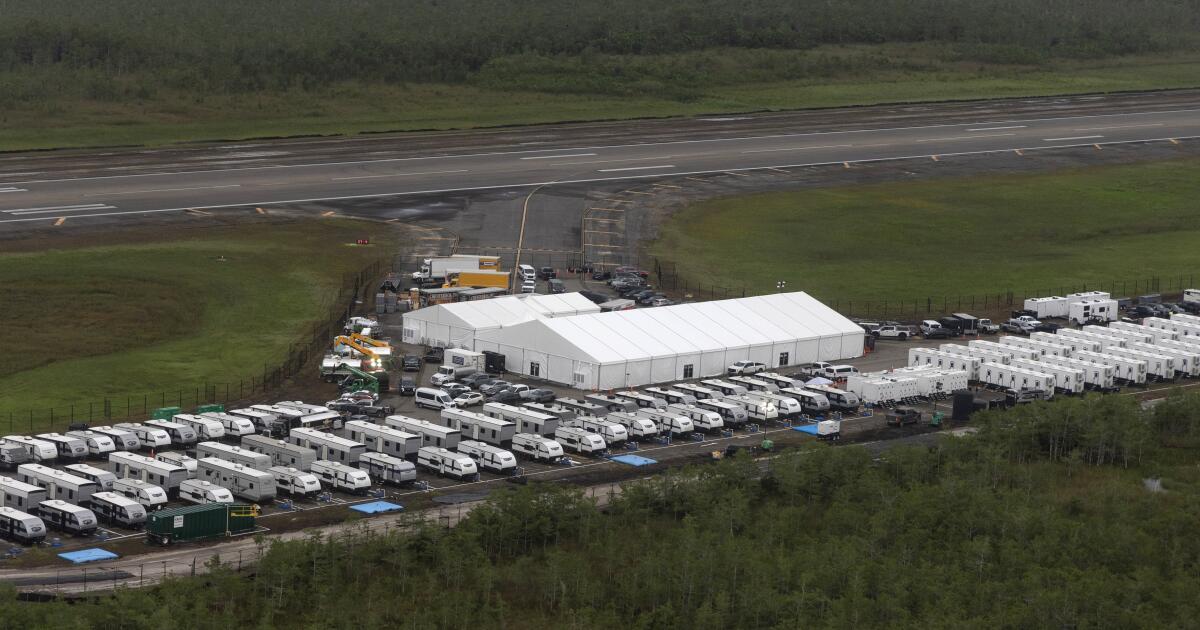Judge rules immigration detention of Chicago man with daughter battling cancer is illegal
CHICAGO — The detention by immigration authorities of a Chicago man whose 16-year-old daughter is undergoing treatment for advanced cancer is illegal, and he must be given a bond hearing by Oct. 31, a federal judge has ruled.
Attorneys for Ruben Torres Maldonado, 40, who was detained Oct. 18, have petitioned for his release as his deportation case goes through the system. While U.S. District Judge Jeremy Daniel said in an order Friday that Torres’ detention is illegal and violates his due process rights, he also said he could not order his immediate release.
“While sympathetic to the plight the petitioner’s daughter faces due to her health concerns, the court must act within the constraints of the relevant statutes, rules, and precedents,” the judge wrote Friday.
Torres’ attorney took the ruling as a win — for now.
“We’re pleased that the judge ruled in our favor in determining that ICE is illegally detaining Ruben. We will now turn the fight to immigration court so we can secure Ruben’s release on bond while he applies for permanent residence status,” his attorney, Kalman Resnick, said in a statement Friday night.
Torres, a painter and home renovator, was detained at a suburban Home Depot store. His daughter, Ofelia Torres, was diagnosed in December with a rare and aggressive form of soft-tissue cancer called metastatic alveolar rhabdomyosarcoma and has been undergoing chemotherapy and radiation treatment.
Torres entered the U.S. in 2003, according to his lawyers. He and his partner, Sandibell Hidalgo, also have a 4-year-old son. The children are both U.S. citizens, according to court records.
“My dad, like many other fathers, is a hardworking person who wakes up early in the morning and goes to work without complaining, thinking about his family,” Ofelia said in a video posted on a GoFundMe page set up for her family. “I find it so unfair that hardworking immigrant families are being targeted just because they were not born here.”
The Department of Homeland Security alleges that Torres has been living illegally in the U.S. for years and has a history of driving offenses, including speeding and driving without a valid license and insurance.
“This is nothing more than a desperate Hail Mary attempt to keep a criminal illegal alien in our country,” Assistant Homeland Security Secretary Tricia McLaughlin said in a statement. “The Trump administration is fighting for the rule of law and the American people.”
At a hearing Thursday, which Ofelia attended in a wheelchair, the family’s attorneys told the judge that she was released from the hospital just a day before her father’s arrest so that she could see family and friends. But since his arrest, she had been unable to continue treatment “because of the stress and disruption,” they said.
Federal prosecutor Craig Oswald told the court that the government did not want to release Torres because he didn’t cooperate during his arrest,
Several elected officials held a news conference Wednesday to protest Torres’ arrest. The Chicago area has been at the center of a major immigration crackdown dubbed “Operation Midway Blitz,” which began in early September.


